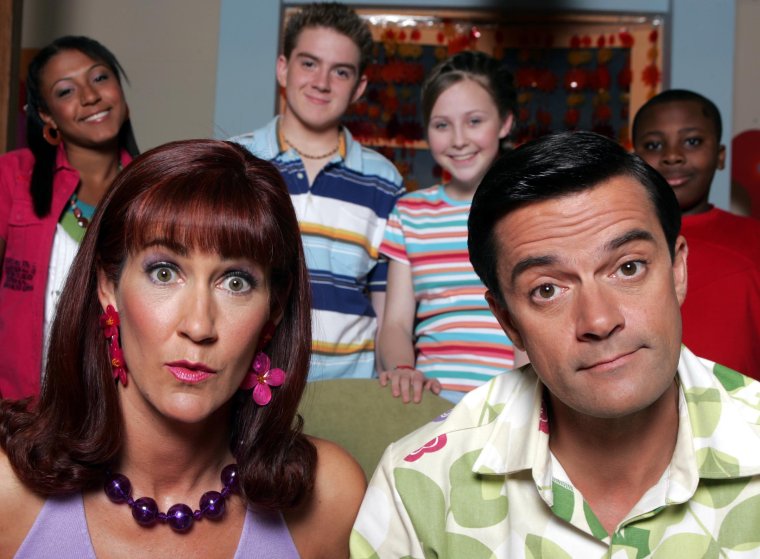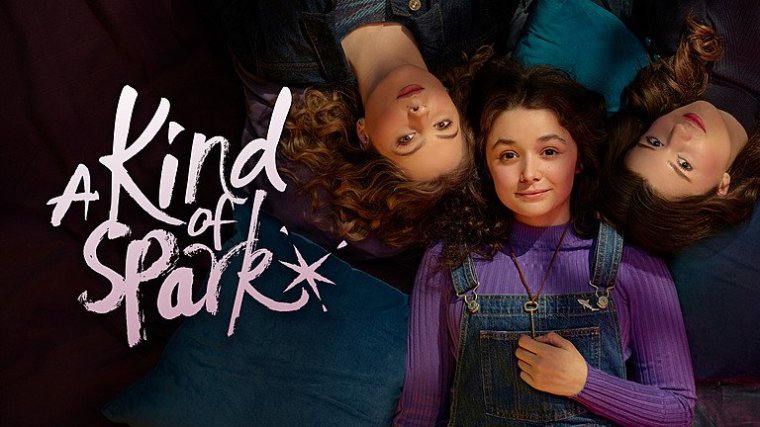Remote control buttons directing viewers straight to Netflix and Disney should be removed because they are depriving young people of the chance to view UK-made programmes, the head of Children’s BBC has claimed.
Speaking out after ITV closed its dedicated CITV children’s channel on Friday, Patricia Hidalgo warned of a “crisis” in homegrown programme-making for young audiences, who are fleeing to streaming platforms, dominated by US imports, or watching videos on TikTok and YouTube.
Viewing on broadcast children’s channels among 4-15 year olds per week has plummeted by 62 per cent since 2019, figures from the Broadcasters’ Audience Research Board show.
TikTok is now used by 53 per cent of children aged three to 17 and Snapchat by 46 per cent, according to Ofcom.
ITV said the figures justified its decision to close CITV and move its programming to ITVX Kids, a new brand on its streaming platform. CBBC, home of Blue Peter and Newsround, is also set to become online-only by 2028.
Ms Hidalgo, BBC’s director of children’s and education, told i: “It is a crisis. There has been a considerable reduction in investment in new content made for children in the UK.”
“There is an abundance of content on streamers but the balance has gone wrong. We just don’t have enough programmes made here that are culturally relevant to children in the UK.”

Smart TV remote controls, the gateway for most viewing, are placing UK public service broadcasters at a major disadvantage.
“Children learn viewing habits from their remotes,” Ms Hidalgo said. “Many of them have a direct-to Netflix or a Disney button.”
“It’s a totally unfair advantage and detrimental to us getting children to content they can discover that is not Disney or Netflix.”
“It’s important that children are able to make up their minds about what they want to watch and not have it pushed to them.”
The Government’s proposed Media Bill will ensure that UK public service broadcasters (PSB) – BBC, ITV, Channel 4, Channel 5 – are given “due prominence” on electronic programme guides.
Ministers are being urged to go further and insist that manufacturers such as Samsung and Sony include a PSB button on the next generation of remotes.
Ms Hidalgo added: “You could have an iPlayer button but what about Channel 4 and others? I would rather have no button at all so children can actually make a choice about what they watch instead of numbly being taken there.”

A DCMS spokesperson said ministers will “protect the UK’s reputation for making brilliant British children’s programming, enjoyed by millions globally.”
The spokesperson added: “The upcoming Media Bill will require our main broadcasters to prioritise high quality children’s shows in commissioning decisions, and guarantee these shows are easy to discover however people watch TV.”
Ms Hidalgo, who previously held senior roles at Disney and WarnerMedia, said the UK had “the best creative minds in children’s TV in the world”.
She has tripled the budget for animation in a bid to create a “Bluey for children aged seven and over” – BBC Studios is reaping the commercial rewards from investing early in the hit pre-school animated series which is made in Australia.
“Children are mostly watching animation so we need to invest more in shows that are culturally relevant to British children, so it’s not just all American shows,” Ms Hidalgo said.
The first project is Duck and Frog, a slapstick comedy from Bristol-based Sun & Moon and creator Sam Shaw, which follows its namesake stars who get hired and fired from a variety of jobs.
Enid Blyton is back in favour – a feature-length dramatisation of The Famous Five will be a BBC One Christmas highlight with maverick Danish film director Nicolas Winding Refn helping to reimagine the classic books.
Ms Hidalgo will speak at a “crisis summit” this month, hosted by the Children’s Media Foundation, bringing together children’s TV broadcasters and programme-makers. “We need to listen to what people have to say and find a funding solution,” she said.
Greg Childs, the foundation’s director and former head of BBC Children’s Digital, said he will propose a mandatory levy on the revenues of streamers like Netflix and social media companies to create a dedicated fund for UK programme-making.
Mr Childs said: “It’s a relatively small amount of money for those companies. It should be allocated to producers, not broadcasters, for programmes that are certifiably ‘public service.’ It would raise £30m-£50m a year.”
Mr Childs said children aren’t watching BBC programmes on iPlayer in large numbers because “they don’t know what it is. They find the iPlayer and ITVX design clunky compared to TikTok and the streamers. The programmes aren’t where children are.”
He feared ITV would cut children’s budgets further because “advertising is restricted and the economics don’t add up”.
“If we don’t do something an entire generation will grow up without watching any public service broadcasting. When they become adults and are asked to pay for it (via the licence fee) they will say, ‘sorry, what’s that?’”
However Craig Morris, ITVX managing editor, said the move to streaming would “super-charge” children’s programming on the network.
He told i: “We are committed to strong, original new UK children’s commissions.”
“The economics are challenging but we are continuing to invest millions. We know audiences are moving online so this is the start of a new phase. There’ll be 1,000 hours of programming to choose from on ITVX Kids.”
Mr Morris cited new shows such as The Sound Collector, an animated series narrated by Keira Knightley about a little boy who has a passion for sound despite being hard of hearing and promised new series of favourites including Mr Bean and The Rubbish World of Dave Spud.
Channel 4 said reaching younger audiences was a “priority” which the network can achieve by “creating and delivering entertaining and high quality content on platforms such as YouTube, TikTok, Snap and Meta so they can easily find and enjoy high quality content”.
Channel 5 remains committed to its pre-school morning strand Milkshake, ordering a new slate of animated and live action shows for children.
CITV – SM:TV Live to Art Attack
The launch-pad for future stars including Holly Willoughby, CITV closed its doors on 9pm on Friday after four decades on the airwaves.
Often naughtier and funnier than the BBC, the brand was originally launched back in 1983 as an afternoon segment on ITV, before being moved to its own channel in 2006.
CITV’s famous shows included SM:TV Live, the anarchic Saturday show mixing music and comedy sketches fronted by Ant and Dec which gave Cat Deeley her big break.
Ms Willoughby and Stephen Mulhern fronted its successor, Ministry of Mayhem.
Other CITV hits included Art Attack and Jungle Run.
Changing children’s viewing habits and declining ratings forced the channel’s closure with shows moving online to ITVX.
Craig Morris, ITVX managing editor, said: “CITV was excellent and it had a great run but we know audiences are online now. It’s the end of one chapter and the start of another.”
ITV continue will offer some children’s content in the early mornings on ITV2.


